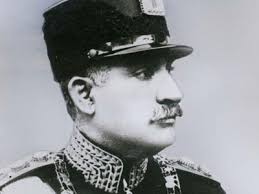On November 8, starting at about 7
p.m., almost 63 million Americans were showing signs of depression and
disbelief. Me included. As the night went on it became clear that a
reality TV star, the most famous avowed racist[1]
candidate since George Wallace of Alabama, was going to become the 45th
President of the United States.
WTF?
Almost no one predicted it, even
among the 60 million voters who decided “grabbing them by the pussy” was just
something a 59-year-old man would say while wearing a microphone. But Niccolo Machiavelli saw clearly how that
Tangerine Tornado would sweep away all opposition and take the most powerful
job in the world.
In his most famous book, The Prince, Machiavelli describes
what works in politics, not how the world “should be.” Machiavelli says the Prince (Leader) must
“take power and keep power, for without power he can do nothing.” While the world wondered what Trump really
wanted, he kept charging forward and won.
And now he has the power.
Trump beat 16 Republican opponents in the primaries before
beating Hillary Clinton. How did he beat all of them? Machiavelli says, “If an injury has to be done to a
man it should be so severe that his vengeance need not be feared.” Trump lashed
out at his opponents and kept at them until they gave up. Since he could not
crush his toughest opponents all at once, he attacked them separately. He made
temporary alliances with some, and then crushed them later.
Ted Cruz fell for this like a bass
snapping at bait. Machiavelli says, “Since
love and fear can hardly exist together, it is far safer to be feared than
loved.” Trump kept Cruz close with flattery, then crushed.
Trump’s
method points to the way he is likely to govern. When Cruz and others on his
own side get out of line, he will attack them mercilessly, either by himself,
or with his attack dogs at Breitbart, supplied by Steve Bannon. As President Barack Obama leaves office, it
is clear that one of his great failures was trying for years to get the
Republicans to work with him. Obama made
deals, then the Republicans would back out or defy him. Trump will not present his back to be stabbed
as Obama did. Trump may end democracy,
but Congress will lose when they challenge him.
Trump told so many
outright lies at his campaign rallies that even his most strident critics had
trouble keeping track of the outrageous things he said. Yet Trump continued to
flourish. Why? “Men are so simple and yield so
readily to the desires of the moment that he who deceives will always find those
willing to be deceived,” says the writer of The Prince.
Trump followed exactly one of the warnings from
Machiavelli that President Obama flouted.
Machiavelli says that the people’s money should be spent in small
amounts with great fanfare. President Obama gave away hundreds of billions of
dollars to save the economy from depression in 2009. He took no credit. Many people who owe their jobs to that
bailout have no idea they were part of a government rescue program. Obama’s people said, “We don’t spike the
ball.” Sounds admirable, but the loss of the House, the Senate and many state
governorships could have been slowed or avoided by taking credit for the way
that money was spent.
When Trump saved several hundred jobs Carrier Corporation
was sending to Mexico, he took full credit.
In addition, Trump used money from Indiana taxpayers for part of the
package. Machiavelli said the Prince can
and should be generous with other people’s money.
For me, re-reading The Prince every four years allows me to keep score
on politicians at every level. With few
exceptions, those that defy the advice of Machiavelli bring themselves
down. Machiavelli says that the Prince
who touches the women of his subjects will be despised. I could see this in the reaction to Trump’s
“grab them by the pussy” comment. At the
time Trump said it, he was not in a political office. Trump’s response was to attack Bill Clinton
for women he slept with while in office, whether in the White House or the
State House in Arkansas. Trump could effectively make the case that he was a
private citizen and not subject to the same rules. And 60 million voters clearly accepted that
premise.
At just 68 pages of text, The Prince can read in a few hours and provide
fun for a lifetime.
Next post I will discuss the other political books I read in 2016.
[1]
Beginning in 2011, Donald Trump rode the Birther lie to political
prominence. There is no reason to be a
Birther except to discredit the President on racial and religious grounds.
Every Birther is a racist.






